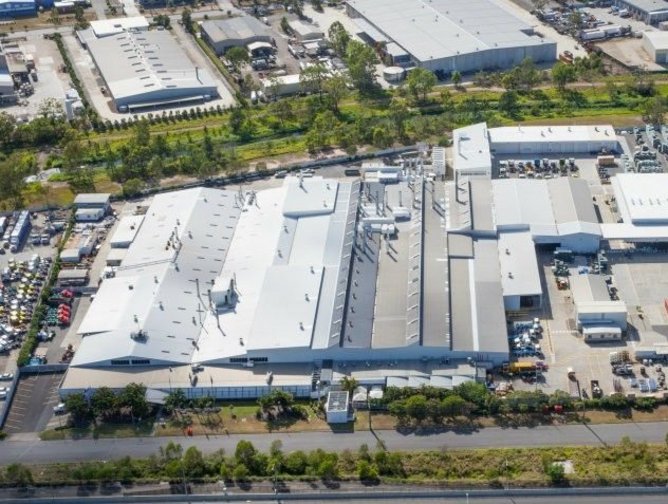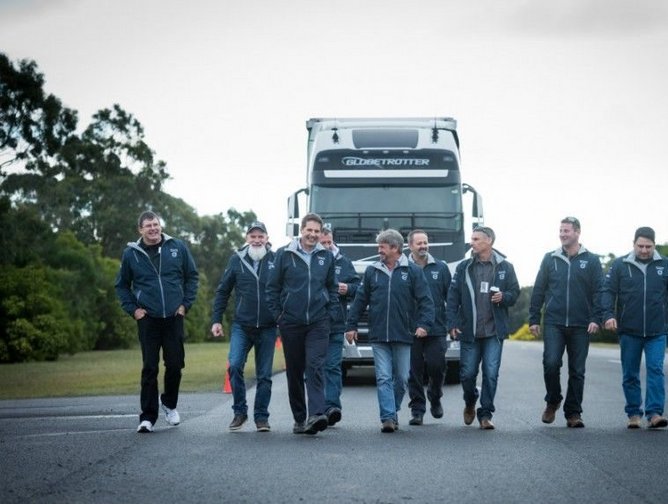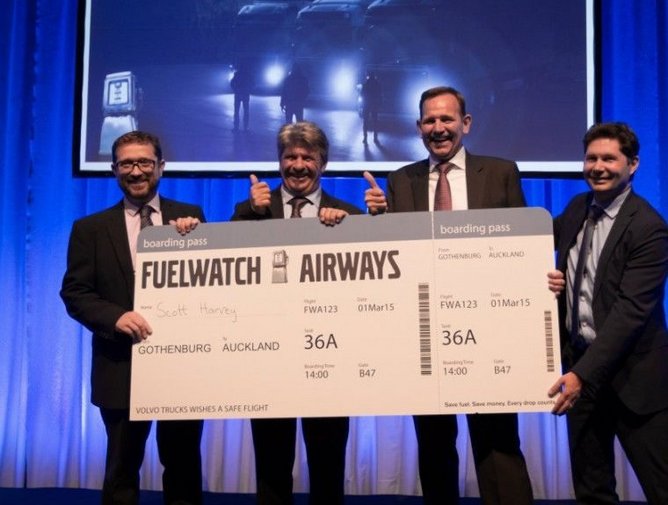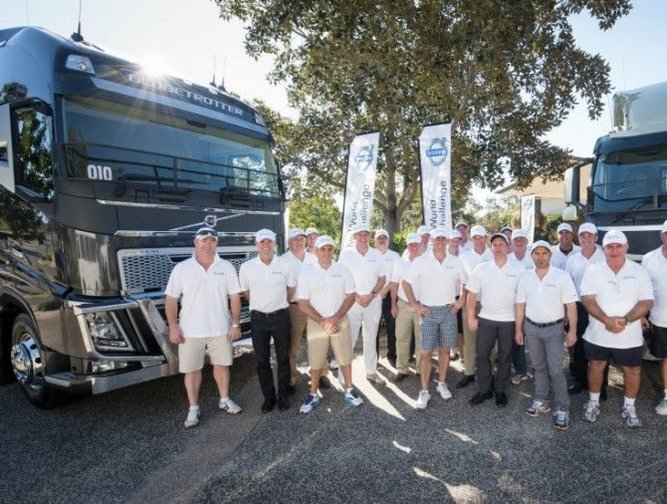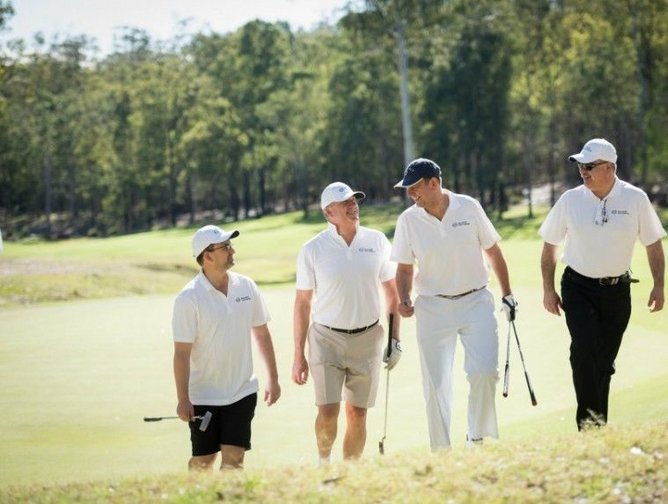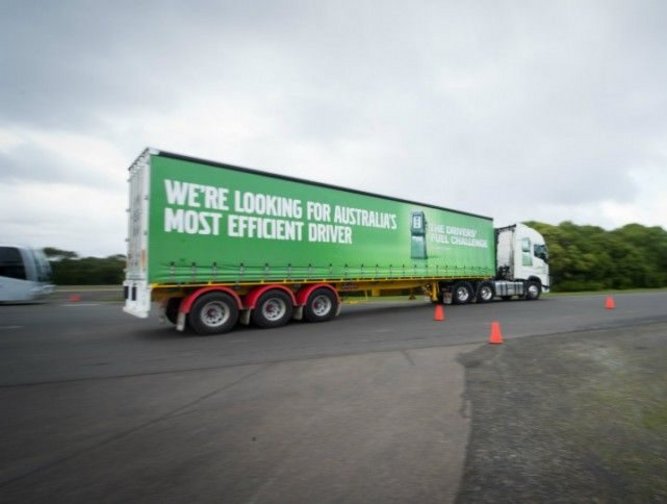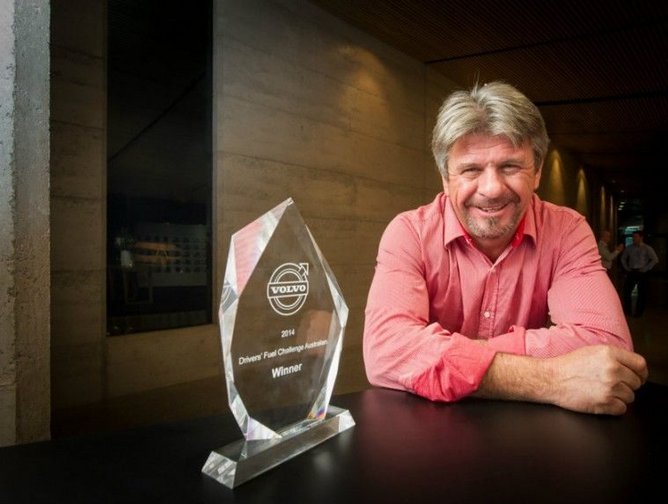Behind the wheel of Volvo Group Australia's customer-centricity
Operating out of Volvo Group Australia’s headquarters in Brisbane, Peter Voorhoeve, President of Volvo Group Australia is responsible for the trucks business in Australia, New Zealand, Papua New Guinea, New Caledonia and French Polynesia. This includes the responsibility of managing the Group's suite of brands in these markets: Volvo Trucks, Mack Trucks, UD Trucks and Renault Trucks. Voorhoeve joined Volvo Group Australia in late 2013, bringing with him an exceptionally strong international and multi-brand background from various senior management positions within Volvo Group, including Truck Sales & Marketing Asia Pacific, Volvo Parts and Volvo Action Service.
Voorhoeve takes great pride in continuing Volvo Group’s premier customer-centric values. "When I came to Australia, I knew this was going to be a very exciting market," says Voorhoeve. "While I have worked in Asia, I come from Europe, where we are very much accustomed to trucks that pull a single trailer and carry anywhere from 42 to 52 tonnes, depending on the country. In Australia that's your small transport. Around here a prime mover unit can pull up to 190 tonnes. From a technical and product point of view, this is probably the most exciting market we have in the world."
Market Saturation and Slowing Economy Create Fierce Competition
"From a global perspective the truck industry in Australia is a small market. The Heavy Duty market is only between 10,000 to 12,000 units. However, the number of brands that we have here is enormous; 17 different brands. It's a highly competitive market and you need to fight very hard to gain market share. In addition, the market has decreased about five percent from last year, creating extra pressure," says Voorhoeve.
Over the past 15 years or so, the Australian economy has largely been driven by the mining industry which has led to a strong appreciation of the Australian dollar. "To use a Dutch expression, I had the feeling that this was the country where the trees grew into the heavens," says Voorhoeve of the market opportunities in Australia, "but the trees are growing a bit smaller now. From a personal perspective, I see that as an ongoing factor."
With reduced infrastructure projects in the mining sector, combined with lowering prices of iron ore and coal, Voorhoeve understands the increased pressure put on the economy and expects a significantly tougher economic climate in the upcoming quarters.
What does this mean for Voorhoeve and Volvo Group? "The economy in Australia needs to make a switch to focusing on non-mining activities as a key revenue stream. This switch is slowed down by the relative strength of the Australian Dollar and that equates to a slower economy. We need to adapt to this new economic climate for the next 18 months."
"If I translate that into the transport industry, we have two big activities. One of these is truck sales, which are investments and closely related to business confidence. The other is service and maintenance, related to the amount of work that our customers have," says Voorhoeve. "Both areas are under pressure. Reduced confidence in the economy leads to a smaller Heavy Duty truck market - which we are currently seeing. The service and maintenance side is fairly stable: there are lower activity levels in Western Australia and Queensland so trucks are driving less kilometres; on the other hand, New South Wales and New Zealand are going very well and Victoria is maintaining its momentum.”
"Coming from Asia, what's especially interesting in Australia is it's a very mature market," says Voorhoeve, "that means customer focus becomes more important. In Australia we're on a level where your product quality and features are essentially hygienic; a base factor.”
In a mature market, you have fantastic infrastructure, strong regulations and a good focus on safety, giving Volvo Group strong opportunities to go one step further and help customers run their businesses more efficiently. “It's really by focusing on the customer that you drive the business,” says Voorhoeve.
At his first dealer conference in February of this year, Voorhoeve said he had three words for his audience: "service, service and service." Voorhoeve sees this as quintessential to Volvo Group's market success. "Especially now with a market that's cooling down, the extra attention that you can give to a customer - being there for them is key."
Voorhoeve explains that in this mature market Volvo Group Australia strives to be a business-solution provider. “We go a step further from just selling the product to actually endeavoring to be a business partner and helping customers run their business.”
Continuous Improvement
Obviously, Volvo Group isn't the only company in the world claiming to focus on their customers. However, Voorhoeve comes from customer service, that's his background, granting a significant competitive advantage in this specific area. Having run his own business prior to his position at Volvo Group as well as coming from a family that was service minded, he has customer service in his DNA, and is very much in tune with the critical importance of being genuinely connected with customers. This has truly nurtured his appreciation and intelligence in regards to dealing with customers.
"I started out with Volvo in the Customer Contact Centre where I would help our customers work with our products and providing solutions, all day every day,” says Voorhoeve. “I try to put myself in our customer’s position, and focus on what I can do to exceed their expectation, to go the extra mile. That is personally very important — I feel good when my customers feel good. My customers can trust that I will do whatever I can to make sure they are more than happy with the products and services they get from me. If you focus on there always being room for improvement, you'll achieve a distinguishing factor. If you do something right, you build a relationship and continue doing business with that customer.”
Long-running Environmental Consciousness
Voorhoeve continues to reinforce Volvo Group's core values of Quality, Care for the Environment and Safety. You'll find that in all of their products. As countless people have come to know, quality is built into all Volvo Group product lines.
While green consciousness isn't necessarily unique, the Company lists care for the environment as a competitive advantage because they've maintained this environmentally friendly approach for over four decades. In 1972, as part of the United Nations Conference on the Human Environment, Volvo recognised that they are part of the environmental problem, but also that they are determined to be part of the solution.
It is clear Volvo Group continues to lead the way in their approach to Environmental Care. “The models we currently have on the road are very fuel efficient; more so than many other brands. Not only is the environment very dear to us, but fuel costs equate to approximately 30 percent of our customers' costs, so creating fuel efficient models provides significant relief for our customers.”
Cost-saving Fuel Efficiency
Volvo Group’s focus on fuel efficiency is best demonstrated through their Driver’s Fuel Challenge, also known as Fuelwatch. The best competitors out of 5,800 participants from 12 countries competed in the Volvo Asia Pacific Fuelwatch Championships, held in Gothenburg, Sweden this year. Australian Scott Harvey, who drives for SRH Milk Haulage, won by being the most fuel efficient driver at the championships. “I am very excited. It’s a great thing to win,” said Harvey after his victory. “And it should be a great motivation for everyone. Back home, I run a business with 120 drivers. If only ten of them show such improvements in terms of fuel efficiency, it means immense savings! It’s really great if you have such a focus.”
Legendary Safety Standards
In a country where you drive with 150 tonnes upwards of 80 kph, safety is of the utmost importance. While many companies do indeed talk about safety today, the founders of Volvo, back in 1928, made it their mission, that as long as people are in or around their products, safety must be the principle design criteria. "We've been talking about safety for the past 80 plus years, backing all of our products. The focus on safety in Australia is very significant, and we have a lot of people dedicated to helping our customers focus on safety," says Voorhoeve.
Every year, about 1.2 million people die in road traffic accidents globally. Research shows that human error is involved in about 90 % of all traffic accidents. Driver fatigue or inattention is by far the most common cause of single-vehicle accidents. “This is not acceptable, which is why we work actively in the areas of safety, aligning with key business partners around our mutual core values,” says Voorhoeve.
One way Volvo demonstrates their concern for all road users is through partnering with Toll in support of the Amy Gillet Foundation’s ‘Amy’s Share the Road Tour’ to highlight how to safely share the road with trucks and cyclists.
Linfox is another well-known name connecting with Volvo through their commitment to safety. Through their dedicated Vision ZERO safety program, Linfox is on a journey to achieve zero fatalities, zero injuries, zero motor vehicle accidents, zero net environmental emissions and zero tolerance of unsafe behavior and practices. The current Qantas in-flight magazine features a safety card highlighting how Volvo Trucks and Linfox are working together to put safety first.
For many of Volvo’s customers safety is not only a core value, it is smart business. Fonterra travels more than 90 million kilometres annually, collecting more than 17 billion litres of milk in New Zealand. Volvo and Fonterra’s latest advertising campaign highlights both companies’ commitment to safety for all road users.
Superior Maintenance and Service
Next to the products, the Company has a very strong and dense dealer network. Once the truck is on the road, Volvo Group does everything it can to ensure optimal operating conditions. When it comes to maintenance and repair Volvo Group strives to optimise its parts availability, which is in part made possible by their large warehouse in Sydney. Volvo Group is capable of delivering 95 percent of all parts immediately from stock. The Company ranks parts availability for their customers very highly and are recognised within the industry for this.
Volvo Group offers their customers the option of servicing trucks themselves or within Volvo Group’s workshops, of which they have 76 around the country on all the major highways. "There's always somewhere local to our customers for us to service their trucks or assist them," says Voorhoeve. "We have a very strong service and distribution network in addition to our comprehensive maintenance agreements, giving customers full control of their service costs."
Local Production Meets Demand of Local Conditions
Volvo Group also has their own production facility in Australia. "It's important that we produce our own vehicles here in Australia, because we recognise the demanding environment of this country. Every truck is different because every application is different," says Voorhoeve. Volvo Group ensures customer satisfaction through the top-performance capabilities of their vehicles and local production standards built to perform in Australia's challenging climate conditions. "This allows us to customise our trucks for our customers."
"We have a very complete and competitive aftermarket service. We have a commercial crew set up which provides customer with a single point of contact, making it as quick and convenient as possible to get the services and solutions they need. It's about proactive thinking with the customer. We always focus on what we can do to maximise the uptime of the truck: finance, parts availability, repair, affordable maintenance,” says Voorhoeve.
From helping their customers maintain the integrity of their shipments (keeping a giant tank of fish oxygenated and alive in one case), to delivering food to an entire busload of people waiting for repair assistance, the golden rule of serving the customer whenever and however it's needed is applied at all times. "You learn to go the extra mile. Often, in customer service, exceeding expectations is in the small things," says Voorhoeve. Voorhoeve applies an empathetic perspective at all times to assist the Company in better understanding how to serve, serve, serve.
